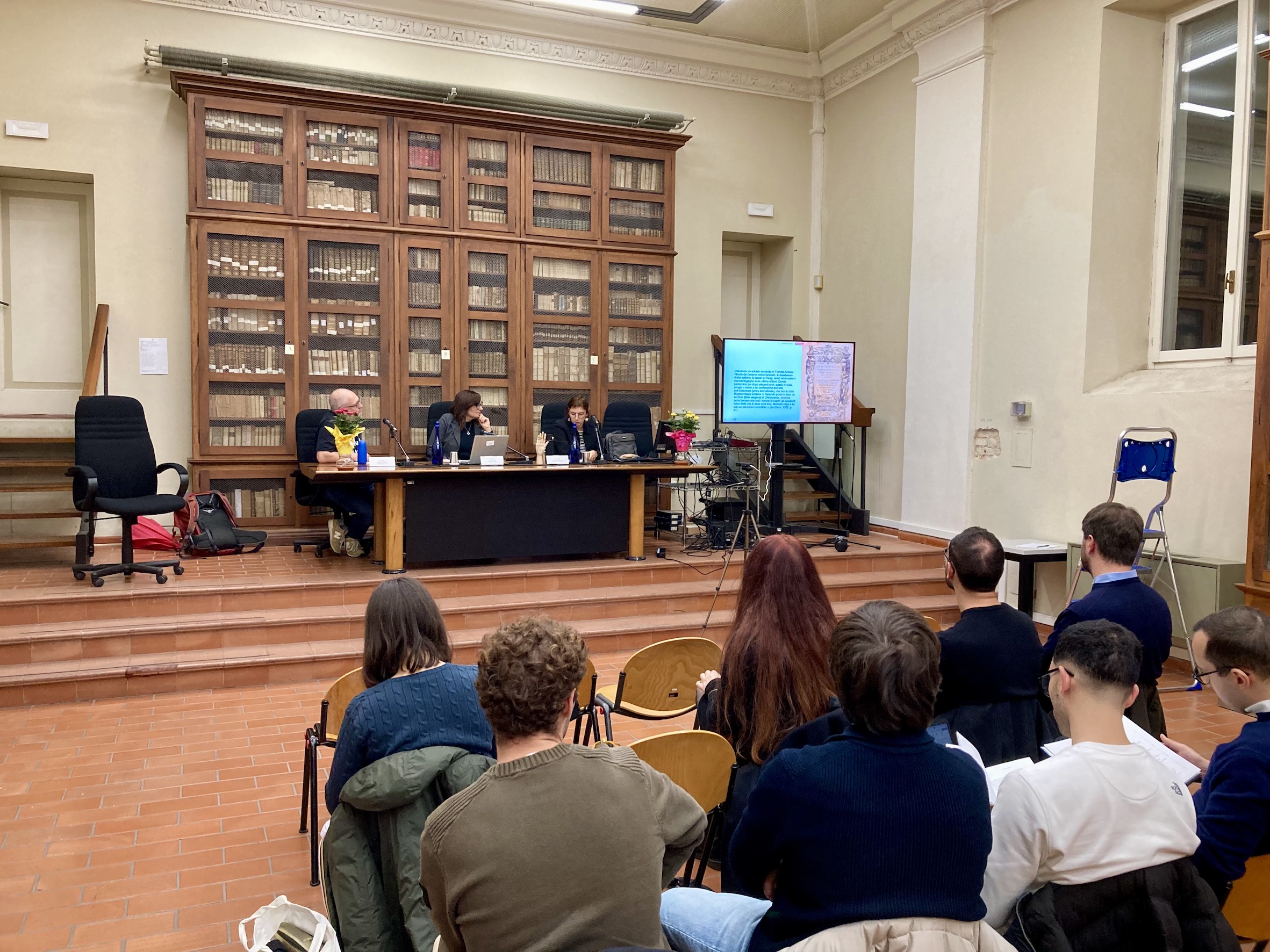Adriatic Chiromancy: Antioco Tiberti and the First Printed Book on Palmistry
Cecilia MURATORI | University of Pavia
In the third session of the VIII cycle of seminars on Adriatic Humanism, dedicated to palmistry in the work of Antioco Tiberti (Cesena, 1445-Rimini, c.1500), Professor Cecilia Muratori presented an analysis of the booklet titled De Chyromantia (Bologna, Benedetto Faelli, 1494) as a compendium of philosophical theories about the hand.
The text belongs to a tradition where palmistry was considered a branch of physiognomy, defined by Pietro d’Abano as the continuous sympathy between body and soul, which change in sync. Tiberti aimed to establish palmistry as a legitimate Aristotelian science, stating, “We believe that astronomy and palmistry are sciences”. The link to Aristotelian tradition centers on a well-known passage from Historia animalium that had been misinterpreted; it mentions that the inner surface of the hand is etched with lines that indicate a connection with predictions about lifespan. Tiberti explained that various translations of the term ἄρθρον led to palmistry emerging from a misinterpretation of this Aristotelian passage. Drawing from De anima, the hand is related to the face, specifically to intellectual capacity, the pivotal point of human essence.
The innovations in Tiberti’s text are as follows: for him, the hand has four fingers, as he considers the thumb to be the summa, the source of the hand’s strength. He emphasizes the role of experimentation and repositions the lines of the hand compared to tradition, asserting that everyone has a liver line but not a head line.
Tiberti, in outlining his own approach, offers the first methodical account of palmistry. Considering the hand as a privileged access point to human inner nature—which, for Tiberti, corresponds to anatomical organs and the characteristics and dispositions associated with them—he thus seeks to access knowledge of human nature.
Thank you to everyone for attending, and see you on December 10 for the final seminar, by Jonathan Regier.
